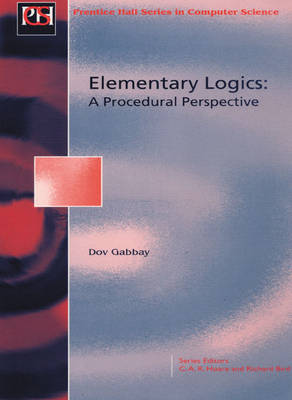Logic is applied in a wide variety of subjects, from software engineering and hardware design to programming and artificial intelligence. In this way, it has served to stimulate the search for clear conceptual foundations. In recent years, many extensions of classical logic such as temporal, modal, relevance and fuzzy logics have been widely used in computer science. Therefore, a new formulation of classical logic is needed which can naturally be modified to yield the effect of non-classical logics. Elementary Logics: A Procedural Perspective aims to introduce classical logic in such a way that one can also easily deviate into discussing non-classical logics. This text clarifies the definition differences between logics and allows the reader to comprehend how these small differences and their magnified effects can be understood by applying concepts common to all logics. The most common logic is introduced at the beginning of the text, with the basic notions which will be transferred to each of the logics examined.
The definition of classical proportional logic is interfered with to obtain a number of non-classical logics, before returning to the classical world to present a natural deduction method for determining the truth of statements.
- ISBN10 0137263651
- ISBN13 9780137263653
- Publish Date 10 March 1998
- Publish Status Out of Print
- Out of Print 13 November 2003
- Publish Country GB
- Imprint Pearson Education Limited
- Format Paperback
- Pages 384
- Language English
